Invisible Car Accident Injuries You Should Know
One of the very first things to do in the immediate aftermath of a car accident is to check yourself and others involved for injuries. You’ll give your body a quick up and down look to see if there’s any bleeding from a cut or scratch you may have sustained during the accident. However, beyond the cuts and bruises, there could be more significant injuries lying beneath the surface. While you may be able to walk away from an accident in one piece, it doesn’t mean you haven’t suffered any injury at all.
An “invisible injury”, one that can’t easily be seen on the surface alone, is very common. Many people are able to walk away from an accident feeling very light symptoms of their invisible injury. In some cases, they might not feel anything at all. This can lead to some people delaying getting their injury checked on, because it doesn’t show up until a few days after the accident has already occurred. This blog is here to give you an idea of some of the more common invisible injuries so you know what to look out for beyond the surface level scratches.
Concussion
A concussion is an injury that occurs in the brain when a violent blow to the head or body takes place. A car accident is an example of an event that could cause a concussion, especially if the accident happened at a high speed. The aggressive crashing motion could rock your body or head enough to cause a concussion. It’s not always immediately apparent that you’ve suffered a concussion. Some symptoms include headaches, confusion, memory loss, dizziness, and more. If you’re feeling any of these symptoms, it’s important to get checked by a professional who can properly diagnose and treat your injury.
Whiplash
Whiplash is an injury to your neck when it undergoes a sudden back and forth movement. Just like concussions, whiplash is more likely to occur when an accident occurs at a higher speed. This is because the severity of the force applied to your neck can impact how bad your whiplash ends up being. Rear end accidents are a common way for this injury to occur, as the person being hit doesn’t have time to react to the oncoming crash behind them. The primary symptom for this injury is pain in your neck and shoulder area.
Spine Injury
Spine injuries deal with any kind of damage that occurs to your spinal cord or the nerves at the end of the spinal canal. If a car accident is violent enough, a driver or passenger could experience a spine injury due to the immense amount of pressure being exerted on their body. This is an injury that can take some time to be fully felt in your body. You might walk away from an accident feeling a small amount of back pain or even nothing at all, only to start feeling the effects hours later. The main symptoms include muscle weakness, feeling faint, or loss of sensation.
Mental Health
Beyond any physical invisible injuries you could sustain, it is very common to experience some kind of mental health issue in the aftermath of a car accident. This can include a wide range of issues, such as depression and anxiety. Any of the previously mentioned injuries can cause significant changes in mood, resulting in noticeable changes to your behavior. While it may not seem like a traditional “injury”, your mental health deserves just as much care and treatment as the rest of your injuries.
It can be challenging to deal with an injury happening inside your body that you can’t fully see or understand. If you or someone you know has been involved in an accident call 1-800-411-PAIN. If you’ve been involved in an accident, the guidance from a personal injury attorney could help navigate the aftermath. It is helpful to have legal and medical experts on your side. The experts at 1-800-411-PAIN can help explain your options, fight for the compensation you deserve, and guide you through a swift recovery.
If you or a loved person has been injured in an accident, call 1-800-411-PAIN today. Our legal professionals can help you navigate the tricky process of filing an insurance claim. Our medical professionals are here to provide you with the treatment you need. Remember, after 911, call 411.


